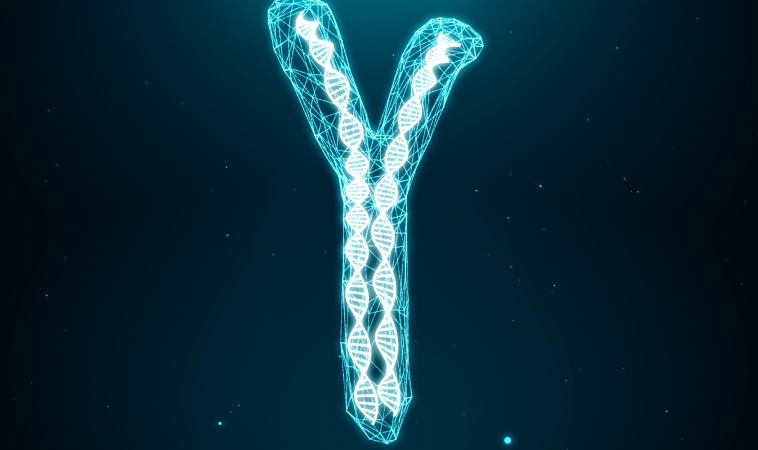New light is being shed on a little-known role of Y chromosome genes, specific to males, that could explain why men suffer differently than women from various diseases, including Covid-19.
The findings were published this month in Scientific Reports by Université de Montréal professor Christian Deschepper, director of the Experimental Cardiovascular Biology research unit of the Montreal Clinical Research Institute.
“Our discovery provides a better understanding of how male genes on the Y chromosome allow male cells to function differently from female cells,” said Deschepper, the study’s lead author, who is also an associate professor at McGill University.
“In the future, these results could help to shed some light on why some diseases occur differently in men and women.”
Genes that females lack
Humans each have 23 pairs of chromosomes, including one pair of sex chromosomes. While females carry two X sex chromosomes, males carry one X and one Y chromosome. This male chromosome carries genes that females lack. Although these male genes are expressed in all cells of the body, their only confirmed role to date has been essentially limited to the functions of the sex organs.
In this study, a genetic manipulation was performed that inactivated two male genes on the Y chromosome
In his study, Deschepper performed a genetic manipulation that inactivated two male genes on the Y chromosome, altering several signalling pathways that play important roles in certain functions of non-sex organ cells. For example, under stress, some of the affected mechanisms could influence the way in which cells in human hearts defend themselves against aggressions such as ischemia (reduced blood supply) or mechanical stress.
In addition, the study showed that these male genes performed their regulatory functions in a way that was unusual compared to the mechanisms generally used by most other genes on the non-sex chromosomes. Thus, instead of specifically activating certain genes by direct action at the genome level, the Y chromosome seems to affect cellular functions by acting on protein production.
The discovery of these differences in function may explain in part why the functions of male Y chromosome genes have so far been poorly understood, said Deschepper.
Males differ from females in the manifestation, severity and consequences of most diseases. A recent example of this duality is Covid-19, which has a mortality rate twice as high in men than in women.
1. Christian F. Deschepper. Regulatory effects of the Uty/Ddx3y locus on neighboring chromosome Y genes and autosomal mRNA transcripts in adult mouse non-reproductive cells. Scientific Reports, 2020; 10 (1) DOI: 10.1038/s41598-020-71447-3

Razi Berry is the founder and publisher of the journal Naturopathic Doctor News & Review, which has been in print since 2005, and the premier consumer-faced website of naturopathic medicine, NaturalPath. She is the host of The Love is Medicine Project docuseries, The Natural Cancer Prevention Summit, The Heart Revolution-Heal, Empower and Follow Your Heart, and the popular 10-week Sugar Free Summer program. From a near death experience as a young girl that healed her failing heart, to later overcoming infertility and chronic fatigue syndrome and fibromyalgia through naturopathic medicine, Razi has lived the mind/body healing paradigm. Her projects uniquely capture the tradition and philosophy of naturopathy: The healing power of nature, the vital life force in every living thing and the undeniable role that science and mind/body medicine have in creating health and overcoming dis-ease. You can follow Razi on social media: Facebook at Razi Berry, Instagram at Razi.Berry and join the Love is Medicine group to explore the convergence of love and health. Look for more, and listen to more Love is Medicine podcast episodes here.















